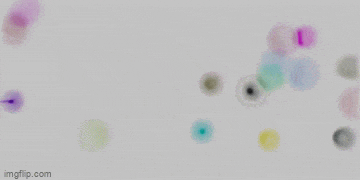
Summary
- GoodAI researchers are co-organizing a workshop with Jitka Cejkova from the University of Chemistry & Technology in Prague (VSCHT) and Mark Sandler and Max Vladymyrov from Google Research for the 2022 ICLR Conference.
- The workshop, “From Cells to Societies: Collective Learning Across Scales,” will explore learning and adaptation in natural systems for new approaches in artificial learning systems and take place April 29, 2022.
- Applications for papers open on January 4, 2022 and end February 25, 2022.
Colleagues from GoodAI are co-organizing a workshop with Jitka Cejkova, Assistant Professor at the University of Chemistry & Technology in Prague (VSCHT), Mark Sandler and Max Vladymyrov, Senior Research Scientists from Google Research for next year’s International Conference on Learning Representations (ICLR). The 2022 workshop, “From Cells to Societies: Collective Learning Across Scales,” will look at natural systems to understand how collective interactions can contribute to new learning approaches in artificial learning systems.
In natural systems learning and adaptation occur at multiple levels and often involve interaction between multiple independent agents. Examples include cell-level self-organization, brain plasticity, and complex societies of biological organisms that operate without a system-wide objective. These systems exhibit remarkably similar patterns of learning through local interaction.
In contrast, most existing approaches to AI – though inspired by biological systems at the mechanistic level – tend to ignore this aspect of collective learning in favor of a global, hand-designed, and usually, fixed loss function in isolation.
The workshop will examine both natural and artificial systems to see how they can (or already do) lead to the development of new approaches to learning beyond established optimization or game-theoretic views. The specific topics that the workshop plans to solicit include, but are not limited to:
- Emergence of learning
- Swarm intelligence
- Self-organization in AI systems
- Evolutionary approaches to AI systems
- Natural induction
- Cultural ratchet
- Cumulative cultural evolution
- New methods for loss-free learning
In particular, the workshop will address the following questions:
- What are the benefits of collectives for learning beyond scalability?
- Are emergence and self-organization good foundations for learning systems?
- Generality and limits of learned self-organizing systems (such as Neural Cellular Automata)?
- What cannot be learned via optimization? Does collective learning offer a way in which yet unsolved problems can be more easily specified and solved compared to traditional approaches?
- How far can learned optimizers take us in the discovery of novel learning mechanisms?
- Where do goals come from? How do we build systems that continually invent their own goals?
- Does social and cultural learning offer insights into the creation of better continual lifelong learners?
- What are the computational mechanisms resulting in innovation akin to the one that differentiated us from other animals?
Why are these questions important?
There are limits to how we currently build and scale up learning systems. Catastrophic forgetting, limited continual learning, lack of fast adaptation with extrapolation abilities, and lack of open-endedness are just some examples of the problems that plague existing machine learning models.
Investigating natural and artificial systems, not individually, but collectively across disciplines and scales could provide insight into the underlying mechanisms that make learning in nature significantly more effective than learning in the artificial systems being built today. Workshop speakers include David Wolpert, Susumu Tonegawa, Michael Levin, Jessica Flack, Richard Watson, and Christine Caldwell, each bringing a unique perspective from a range of disciplines.
The workshop is open for paper submissions that fit its scope of inquiry. The open call begins on January 4, 2022 and ends February 25, 2022. Details on submission guidelines can be found here. Workshop description and further information here.
If you are interested in Badger Architecture and the work GoodAI does and would like to collaborate, check out our GoodAI Grants opportunities or our Jobs page for open positions!
Through our grants program, we share our vision of a roadmap towards general AI and invite researchers across the world to tackle the key milestones together with us. Learn more about the relevant research topics and publication outcomes the GoodAI Grants program has supported and how to apply.
For the latest from our blog sign up for our newsletter.






Leave a comment